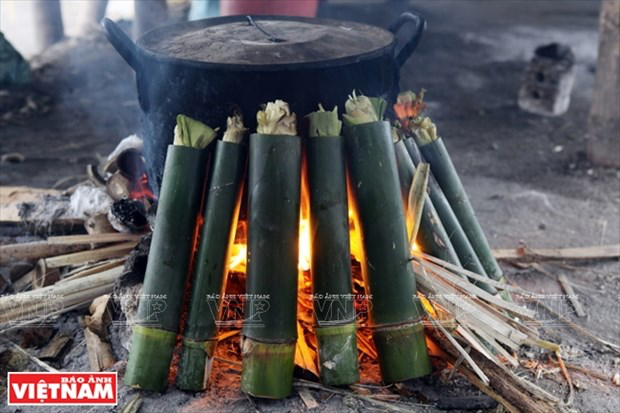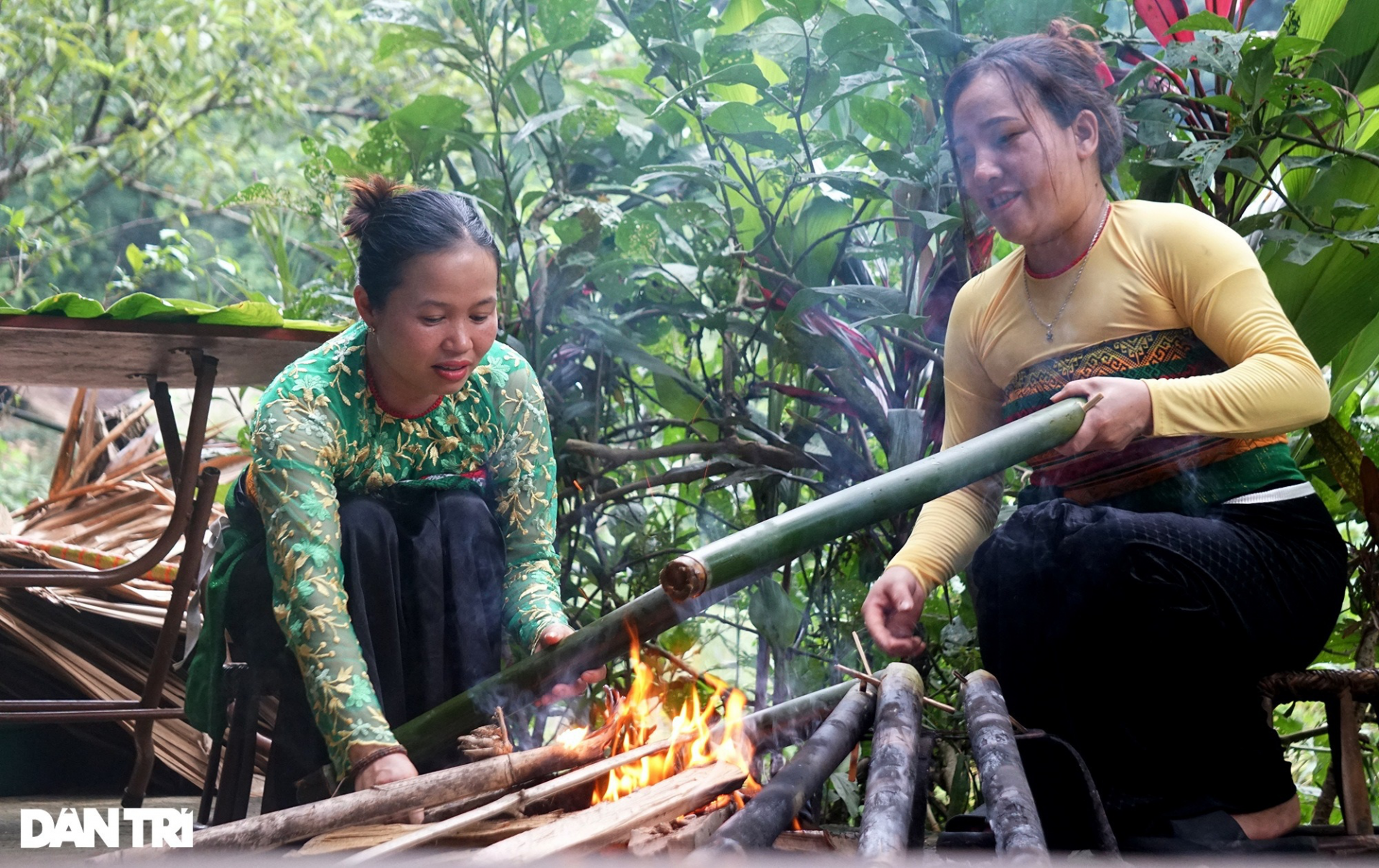 |
| Photo: DanTri |
Bamboo-tube rice of the Thai ethnic group is part of the unique culinary culture of the mountains. In the highland districts of Thanh Hoa today, the beauty of this traditional culinary culture is still preserved.
During festivals, Tet or days when precious guests visit, Thai ethnic people often cook bamboo-tube rice.
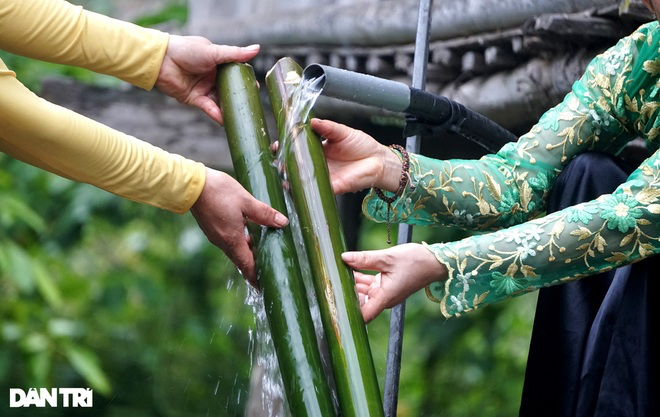 |
| Photo: DanTri |
The main ingredients to make bamboo-tube rice are bamboo tubes and sticky rice. The bamboo tube used must be fresh, not too young or too old. After being cut from the forest, the bamboo will be divided equally into tubes, then washed.
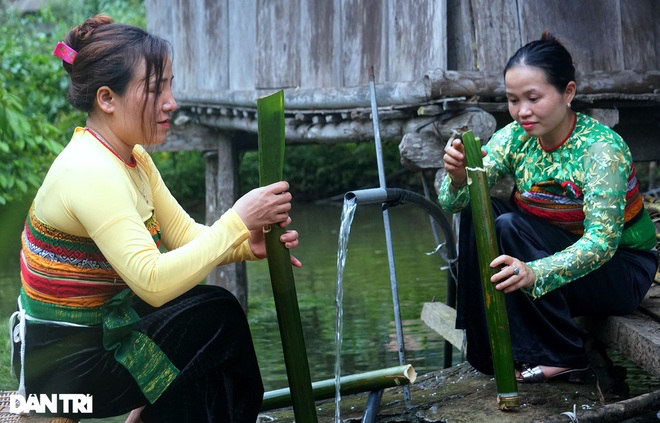 |
| Photo: DanTri |
To create a fragrant aroma, people often stuff banana leaves inside the bamboo tube.
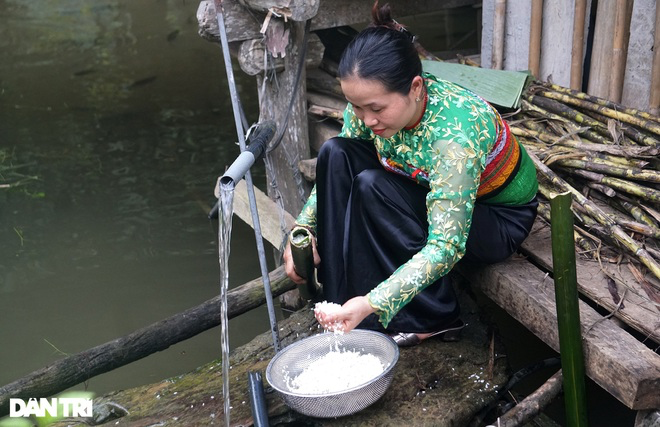 |
| Photo: DanTri |
Next is choosing sticky rice. Thai people often use fresh upland sticky rice, (generally large grain). The sticky rice is soaked in water for about 30 minutes to 2 hours, then washed, drained and put in a bamboo tube.
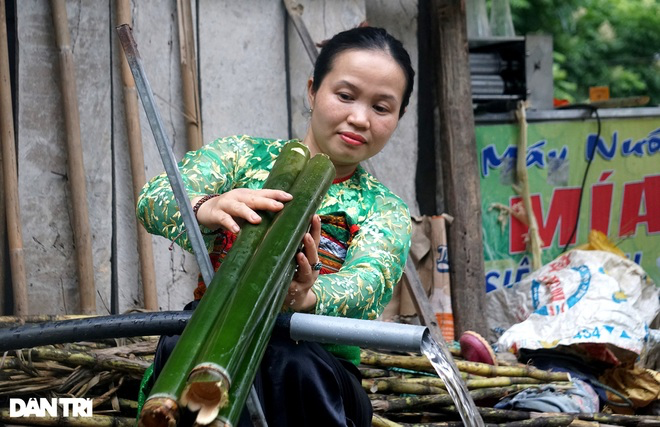 |
| Photo: DanTri |
Normally, when pouring rice into the bamboo tube, they will not fill the tube but leave a moderate gap from the mouth of the bamboo tube so that when the glutinous rice is cooked, the rice will expand to cover the mouth of the tube.
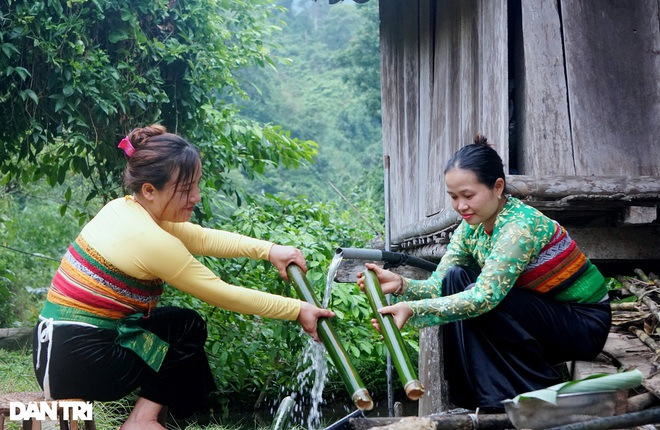 |
| Photo: DanTri |
After putting sticky rice into the bamboo tube, a small amount of clean spring water is added to make rice. The amount of water is must be just right, otherwise the rice will be mushy and inflexible.
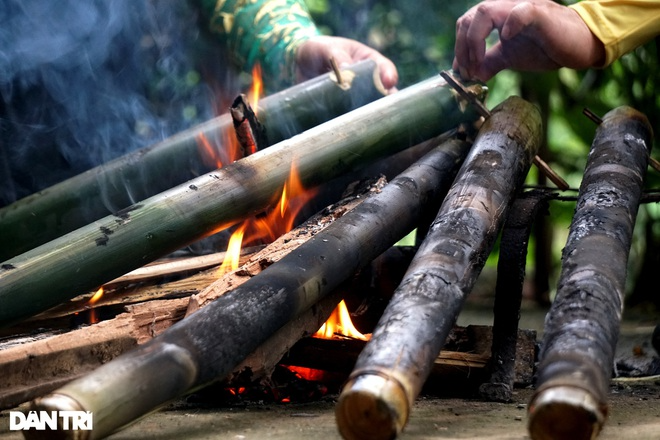 |
| Photo: DanTri |
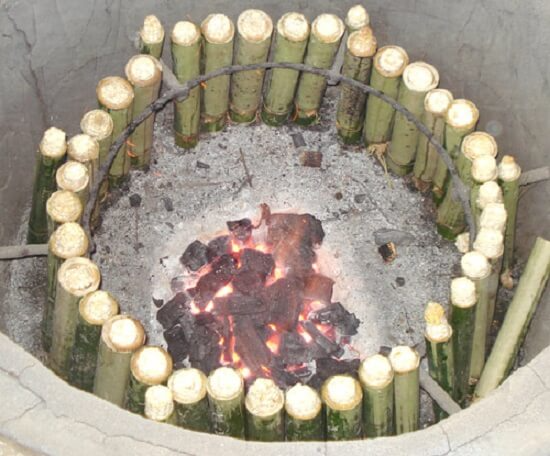 |
| Grilled bamboo-tube rice around the fire. Photo: guuvivu |
Normally, bamboo-tube rice will be baked on a charcoal fire for about 1 hour.
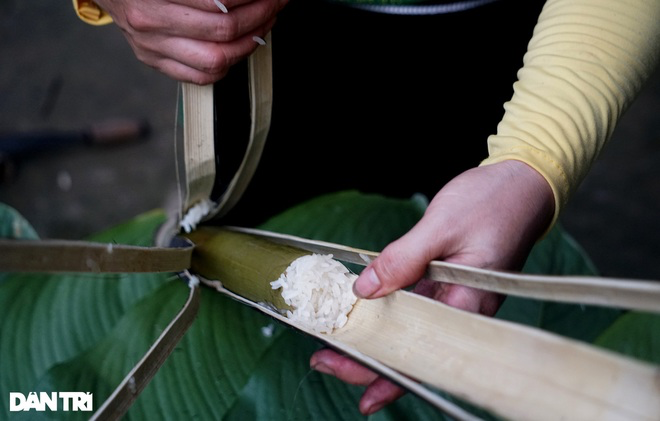 |
| Photo: DanTri |
When baking, you must rotate the bamboo tube continuously, not let the bamboo tube burn too much and let the rice cook evenly. To check the doneness of the rice, people use their hands to smooth the bamboo tubes; when the bamboo tubes are soft and fragrant, the rice is cooked.
Peele off the outer shell to get the cooked rice inside. A finished tube of bamboo-tube rice is fragrant with the smell of glutinous rice, mixed with the aroma of bamboo and banana leaves creating a unique and attractive taste.
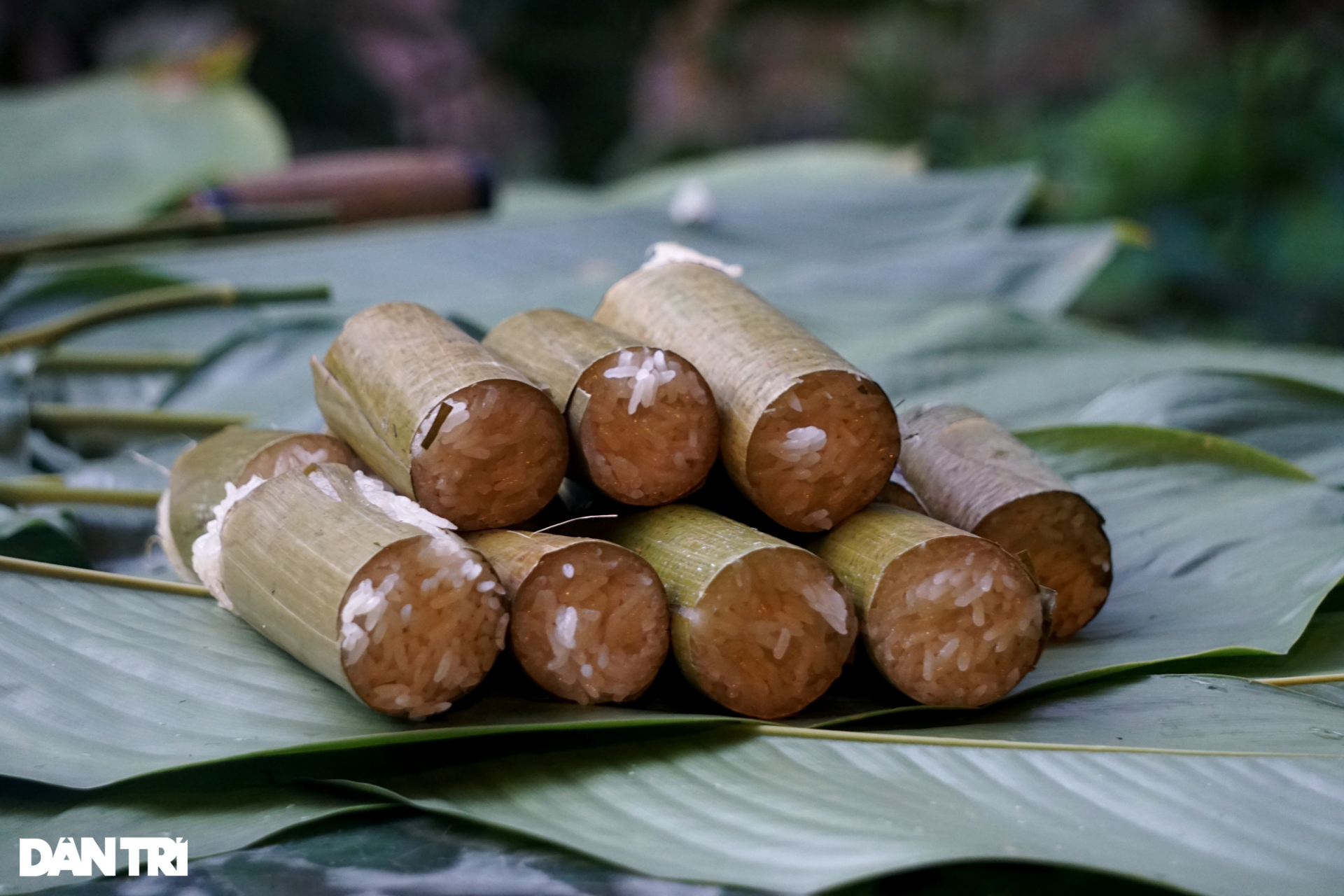 |
| Photo: DanTri |
Bamboo-tube rice is cut into pieces for a meal. Normally, the indigenous people of the Thai ethnic group use sesame salt or fish sauce for dipping the rice.
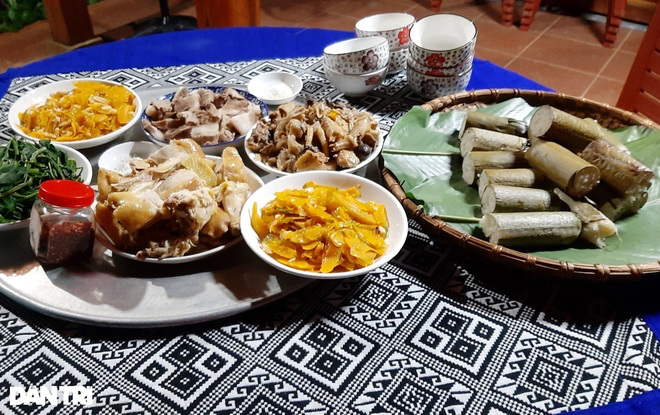 |
| Photo: DanTri |
If you have the opportunity to visit community tourism villages in Thanh Hoa, it will be easy to find images of Thai women making traditional bamboo-tube rice.
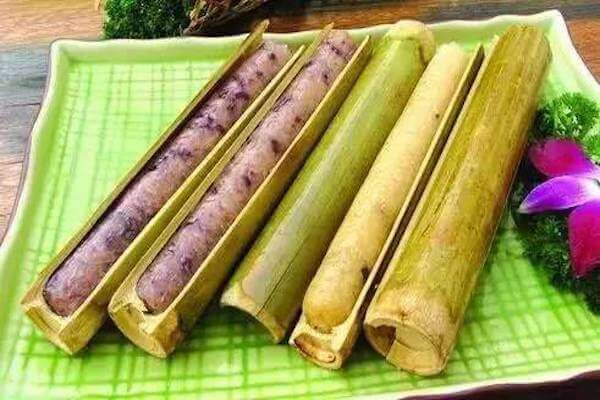 |
| Bamboo-tube rice has a variety of flavors and colors. Photo: guuvivu |
Unique dishes of the mountains. Video: DanTri
|
Origin of bamboo-tube rice Com lam is no longer strange to people, but a familiar dish and a specialty of mountainous ethnic minorities such as the Thai, Tay, Nung and Dao. However, the origin of the dish is not known to all. According to the stories of the village elders, in the past, ethnic groups lived mainly in the forest and mountains and their nomadic life was seasonal; accordingly, they could not live anywhere for more than two years at a time. After farming and harvesting, the land was no longer as fertile as before and the people knew that if they continued to cultivate one more season, they would not be able to harvest as well as the previous season. People’s lives were very difficult and lacked all kinds of things, from making houses, which were also very temporary, to household utensils such as pots, pans and bowls, which were extremely lacking, so people came up with many ways to cook in the absence of these necessary items. People needed a way to make rice without needing a saucepan or pot, so bamboo-tube rice was born.
The cooking method is both quick and convenient, while the rice is fragrant and delicious. People call it “lam rice.” The word “lam” is the Thai way of saying it and is not a noun but a verb in the Kinh language which means “to bake.” |

